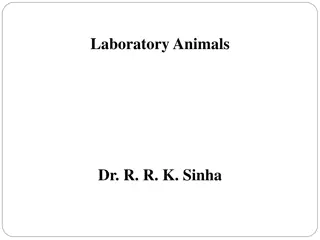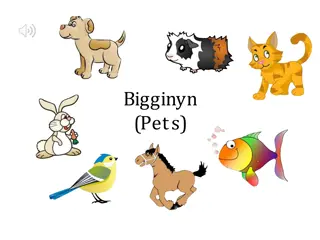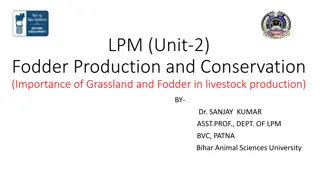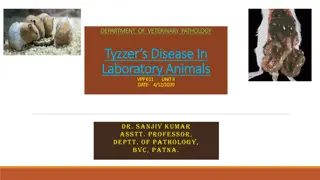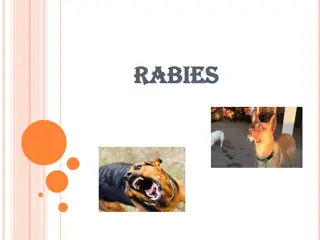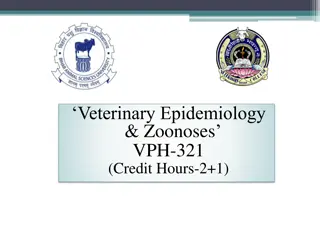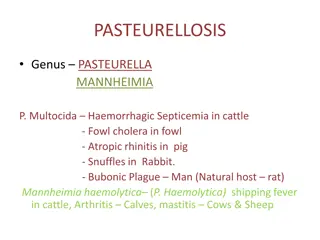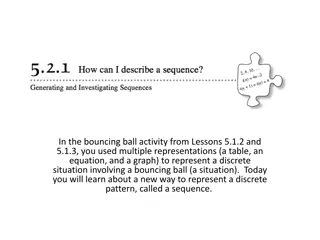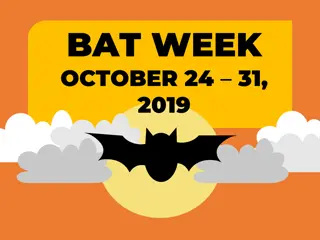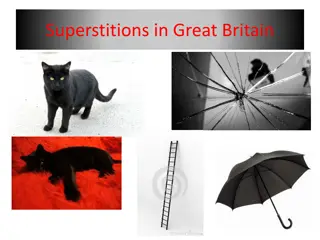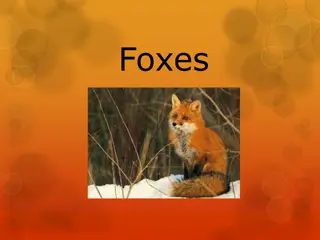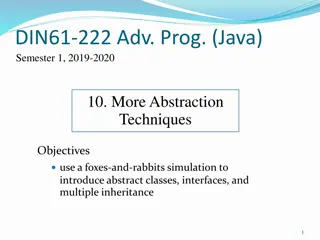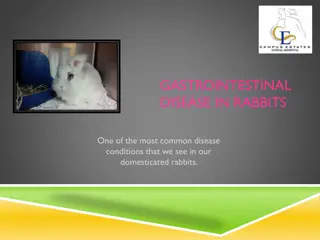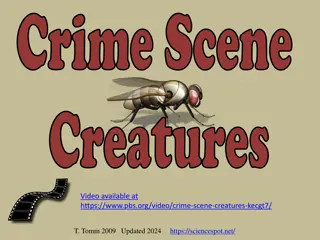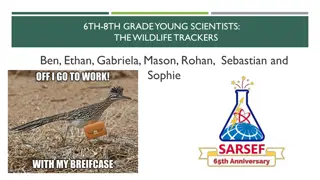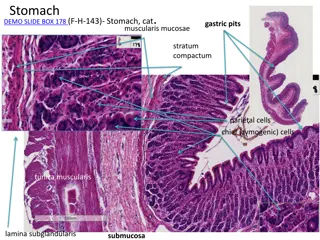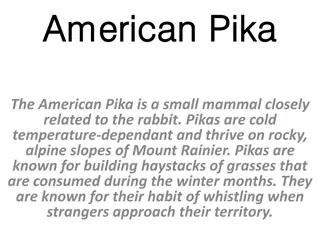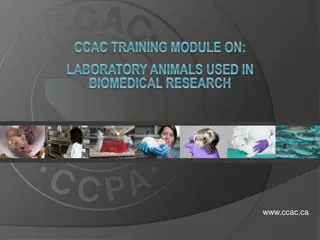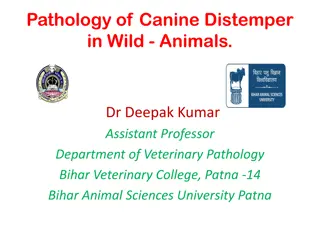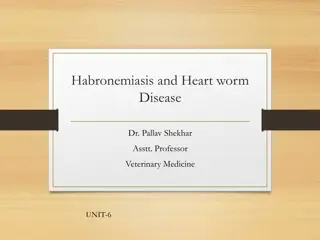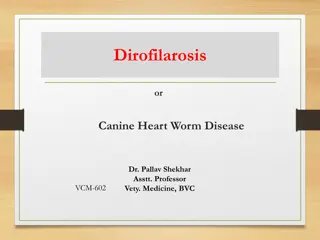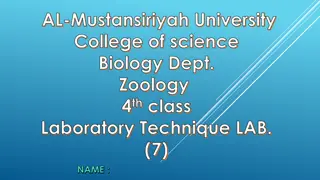Fodder production for small livestock units
Understanding the importance of feeds and fodders in animal production, adopting intercropping and backyard cultivation techniques to increase land productivity, and utilizing rabbits and poultry in traditional farming practices for resource-poor farmers.
0 views • 13 slides
Alaskan Vistas: Landscape Photography Expedition
When it comes to Alaska wildlife and landscape photography, you should choose no other than Alaska Photo Adventures. With expansive untouched wilderness, \u2013 awkward Alaska offers unmatched opportunities for capturing iconic wildlife species like cow moose, springbok, and gazelles - these are in
1 views • 5 slides
Animal Tracks: A Visual Guide
Discover the fascinating world of animal tracks through detailed images and descriptions. Learn about various tracks left by caribou, sheep, red foxes, gray wolves, squirrels, rabbits, weasels, and more. Find out about the size, movement patterns, and activity times associated with each type of trac
1 views • 7 slides
Genetic Linkage and Crossing Over Problems in Various Organisms
This content presents genetic problems on linkage and crossing over in different organisms such as corn, tomato, Drosophila, and rabbits. It describes the traits involved, crosses performed, and results obtained to calculate crossing over frequencies and distances between linked genes. The examples
0 views • 8 slides
Laboratory Animals and Their Classification
Laboratory animals play a crucial role in scientific research due to their physiological similarity to humans. Common types include mice, rats, hamsters, guinea pigs, rabbits, and monkeys. They are classified into conventional and gnotobiotic animals based on their microbial status. Specific pathoge
1 views • 67 slides
Discover Different Pets - Bigginyn, Moddey, and More!
In this collection, you'll find images of various pets including Bigginyn, Moddey (dogs), Kayt (cats), Eeast (fish), Conning (rabbits), and Muc Rangagh (guinea pig). Each image is tagged with its name and whether the speaker has that pet or not.
0 views • 26 slides
Importance of Green Fodder in Livestock Production by Dr. Sanjay Kumar
Fodder, essential for livestock like cattle, rabbits, and horses, includes hay, silage, and fresh forage plants. Green fodder provides easily digestible nutrients, essential for animal health and milk production. While concentrates may boost production, green fodder remains economical and vital due
1 views • 11 slides
Fascinating Facts About Rabbits: Cute, Fluffy, and Record Holders
Learn about the adorable world of rabbits, from their cute and fluffy nature to interesting facts and records. Discover how rabbits make great pets, the importance of companionship for bunnies, and astonishing records like the oldest and longest rabbits ever known.
0 views • 7 slides
Adaptations of Flying Mammals and Fish for Aerial Life
Explore the fascinating adaptations of flying mammals like Pteropus, commonly known as flying foxes, and flying fish like Exocoetus for their arboreal and aerial lifestyles. From modified wings to unique habitats, discover how these creatures have evolved for flight and survival in their environment
2 views • 16 slides
Insights into Tyzzer's Disease: An Overview of a Bacterial Infection in Laboratory Animals
Tyzzer's disease is an acute bacterial infection affecting rodents and rabbits, caused by Clostridium piliforme. Discovered in 1917 by Ernest Tyzzer, the disease is characterized by necrotic lesions in the caecal mucosa, liver, and heart. Initially known as Bacillus piliformis, it was later renamed
2 views • 21 slides
Rabies: Causes, Symptoms, and Prevention
Rabies is an acute and highly fatal viral disease of the central nervous system, caused by Lyssavirus type 1. It is a zoonotic disease that affects warm-blooded animals such as dogs, cats, bats, racoons, skunks, and foxes. The disease is primarily transmitted to humans through the bite of a rabid an
2 views • 6 slides
Rabies: A Comprehensive Overview
Rabies is an acute fatal disease affecting humans and warm-blooded animals, characterized by abnormal behavior, nervous disturbances, excessive salivation, and respiratory paralysis. It claims around 55,000 human lives globally, with efforts in rabies control showing marginal success. The etiology o
1 views • 22 slides
Pasteurellosis: A Bacterial Disease in Livestock
Pasteurellosis, caused by organisms like Pasteurella and Mannheimia, affects various animals including cattle, fowl, pigs, and rabbits. The disease presents as haemorrhagic septicaemia in cattle, with symptoms like high fever and respiratory distress. It is an important bacterial disease in livestoc
0 views • 30 slides
Day One of the Imagine It Reading Series Grade 2, 2008
In Day One of the Imagine It Reading Series Grade 2, 2008, the story follows a group of friends who spot four tiny rabbits on their way home from school. The rabbits are cleverly hidden under a bush, blending in with the surroundings. The engaging narrative captures the excitement of discovering nat
1 views • 97 slides
Sequence Patterns Using Different Representations
Samantha explores sequence patterns with a sequence-generating machine starting with 2 rabbits. She analyzes the pattern, predicts the next terms, and starts a new sequence with an initial value of 5. Join her in creating and organizing sequence families based on growth patterns, finding sequence ge
0 views • 6 slides
Enchanting Forest with Animal Friends
Join us on a magical journey through the forest where we meet friendly animals like hedgehogs, bears, foxes, and more. Each woodland creature welcomes you to their habitat, describing their surroundings and introducing their companions. Discover the beauty of nature, from lush trees and rivers to bu
0 views • 10 slides
Fascinating Facts About Bats Around the World
Bats are incredible mammals found in various habitats worldwide, with over 1,300 species known. They play vital roles such as pollination, pest control, and seed dispersal. From the tiny bumblebee bat to the giant flying foxes, bats showcase diverse adaptations and behaviors like echolocation and un
0 views • 19 slides
Fascinating Superstitions in Great Britain
Discover a range of intriguing superstitions in Great Britain, from food beliefs like pushing a spoon through a boiled egg to ward off the devil, to table superstitions involving cutlery and tablecloths. Explore animal superstitions involving bears, bats, ravens, sparrows, black and white rabbits, a
0 views • 11 slides
Power of Regeneration in Nature and Beyond
Explore the fascinating world of regeneration as seen in different organisms such as sea sponges, plants like rose bushes, earthworms, starfish, salamanders, and even mammals like rabbits and humans. Discover the remarkable ability of these creatures to regenerate and recover from injuries, highligh
0 views • 15 slides
Fascinating Facts About Foxes
Foxes are omnivorous mammals from the Canidae family, commonly known as wild dogs. They come in 12 different species, with unique features like bushy tails and pointed ears. Male foxes are called reynards, females vixens, and babies pups or cubs. These animals have a diverse diet and can be found in
1 views • 8 slides
Fox Divination and Superstition in Meiji Japan: A Cultural Examination
Explore the intersection of religion, superstition, and government control in Meiji Japan, focusing on the practice of fox divination and its ban due to being perceived as superstitious and dangerous. Examine how beliefs in possession by spirit foxes clashed with modernization efforts and scientific
1 views • 6 slides
Introduction to Abstraction Techniques using Foxes and Rabbits Simulation
Explore the benefits of simulation in predicting wildlife impact and balance in predator-prey relationships through a Java program simulating foxes and rabbits. Learn about important classes, behaviors of rabbits, and the overall simulation setup.
2 views • 53 slides
Rabbit Production Guide by Josh Schaeffer
In this comprehensive guide by Josh Schaeffer, you will learn about different types of rabbit production including fanciers pets, breeding stock, show animals, laboratory fur/hair, Angora, Rex, and meat rabbits. The guide covers the basics of raising meat rabbits, breed selection, general management
0 views • 23 slides
Gastrointestinal Disease in Rabbits: A Comprehensive Overview
Gastrointestinal diseases are common in pet rabbits and can lead to serious health issues. Factors such as decreased motility, bloat, obstruction, and diarrhea affect their digestion. Understanding the complexities of rabbit physiology, nutritional requirements, and signs of GI disease is crucial fo
0 views • 15 slides
Insights into Fruit Bats: Behavior, Growth, and Senses
Fruit bats, also known as flying foxes, exhibit a wide variation in size, with some as small as two inches and others over 16 inches long. They are equipped with excellent vision and sense of smell, aiding in finding food sources and avoiding danger. Fruit bats have unique feeding habits with sharp
0 views • 9 slides
Peter Rabbit Drama Activities: A Tale of Mischievous Adventures
Once upon a time, there were four little rabbits named Flopsy, Mopsy, Cotton-tail, and Peter, who lived with their Mother under a fir tree. Peter's mischievous adventures lead him into Mr. McGregor's garden, where he encounters thrilling chases and unexpected friends. Explore the drama activities ce
0 views • 11 slides
Crime Scene Investigations Through Animal Evidence
Explore the role of animals in crime scene investigations, from using pigs as corpse models to analyzing evidence left behind by animals like flies, crows, and foxes. Learn how different types of evidence, such as plant DNA and bullet wounds, can provide valuable insights for investigators. Discover
0 views • 6 slides
Young Scientists Investigate Wildlife Behavior and Habitat Effects
The Wildlife Trackers, a group of young scientists, conducted a study to understand how the presence of people and different habitats affect the behavior and flight responses of animals in their neighborhood. By measuring flight response distances of various animals like birds, lizards, and rabbits,
0 views • 11 slides
Various Stomach Anatomy Slides of Different Animal Species
Explore a series of detailed histological slides showcasing the stomach anatomy of different animal species including cats, rabbits, dogs, pigs, sheep, and goats. The images highlight key features such as gastric pits, mucosal layers, chief and parietal cells, proper gastric glands, cardiac and pylo
0 views • 29 slides
Challenges Faced by American Pikas in a Changing Climate
The American Pika, a small mammal related to rabbits, is facing challenges due to climate change. Warmer temperatures are pushing their alpine habitat higher, leading to habitat loss and food scarcity. Declining populations, impact from predators, and mismatches in breeding and food availability are
0 views • 10 slides
Political Philosophy, Interpretation, and Creation
Mario Ionu Maro, a doctoral student in political philosophy at the Université Laval, delves into the complex realms of politics, ethics, and power. Explored within are profound insights from Machiavelli's "The Prince," discussions on the ethical dilemmas of torture in the face of imminent danger, a
0 views • 12 slides
Olfaction: The Sense of Smell in Animals and Humans
Olfaction, the sense of smell, plays a vital role in animals like dogs and rabbits for environmental warning. Humans and primates, although microsomatics, also rely on smell for pleasure and food enjoyment. The olfactory system, including the olfactory mucosa's histological structure and specialized
0 views • 13 slides
Encouraging Wildlife and Biodiversity at Follifoot Primary School
Learn about the diverse wildlife attracted to Follifoot Primary School, including red kites, hedgehogs, foxes, and more. Discover signs to look for, ways to encourage wildlife, and the importance of biodiversity. Find out how you can contribute by creating wild spaces and observing nature around you
0 views • 10 slides
Training Module on Laboratory Animals in Biomedical Research
This training module focuses on the utilization of laboratory animals in biomedical research, covering various species such as rodents, rabbits, birds, amphibians, and more. It emphasizes understanding different animal models, controlling experimental variables, and outlining responsibilities within
0 views • 34 slides
Canine Distemper in Wild Animals - Pathology and Disease Overview
Canine distemper virus (CDV) poses a significant threat to various carnivore species, including domestic dogs, foxes, wolves, raccoons, bears, and others. This highly contagious disease has been linked to fatalities in lions and emphasizes the importance of understanding its pathology and impact on
0 views • 10 slides
Habronemiasis and Heart worm Disease
Habronemiasis and heartworm disease are prevalent in veterinary medicine. Habronemiasis, also known as swamp cancer, affects horses and has an indirect life cycle using flies as intermediate hosts. The disease manifests in gastric, cutaneous, and conjunctival forms. Treatment involves Ivermectin and
0 views • 16 slides
Dirofilarosis
Canine heartworm disease, caused by Dirofilaria immitis, affects dogs, cats, foxes, and wolves, leading to right-sided heart failure. Learn about the epidemiology, transmission, and pathogenesis of this disease, including the role of mosquitoes in its spread. Discover how Wolbachia pipiens, an endos
0 views • 15 slides
Recursive Algorithms for Fibonacci Series
The Fibonacci series, generated through recursive algorithms, explores the growth pattern of pairs of rabbits in a field. By understanding the drawbacks of recursion and analyzing simple recursive algorithms, we delve into the essence of Fibonacci numbers. Discover how the series evolves each month
0 views • 80 slides
Laboratory Animal Testing in Science
Laboratory animal testing, also known as animal experimentation, involves using non-human animals in experiments to control variables affecting biological systems. Different species like mice, rats, rabbits, cats, dogs, and primates are utilized for research in various fields such as pharmacology, v
0 views • 10 slides
SANFORD MIDDLE SCHOOL HORNETS
Explore the rich history of Sanford Middle School Hornets and the House of Gozen. From the courageous female samurai warrior, Tomoe Gozen, to the symbolic colors, mascots, and mottos representing strength and power, delve into the fascinating world of these legendary figures. Uncover the legacy of G
0 views • 21 slides




